The American Civil War started due to the secession of Southern states who then went on to form a new federal government, the Confederate States of America. American president Abraham Lincoln declared in his inaugural address that he would use force to maintain possession of Federal property and the war began with the Confederate attack on Fort Sumter on April 12, 1861. The American Civil War lasted till May 9, 1865 and was ultimately won by the Union forces. However, this came at the cost of the lives of 620,000 to 750,000 people, which is more American deaths than in all other U.S. wars combined. The primary reasons behind this costly war include the long standing conflict between the two sides over the issue of slavery; and friction over which powers belonged to the sovereign states and which to the Federal government. Know more about the American Civil War through its 10 major political, economic and social causes.
#1 Economics of Cotton
The financial and political influence of cotton in the 18th and 19th century was unprecedented. It was perhaps far greater than that of the oil industry in the late 20th and early 21st century. With the introduction of the cotton gin in 1793 and the flourishing slave trade, the southern states of America became the primary cotton suppliers of the world. By the mid-19th century, the southerners were supplying more than 70 percent of the cotton to Great Britain, the leading world economic and colonial power of the time. The plantation owners, with black cotton growing slaves, gained tremendous wealth and influence during the times and were willing to go to any lengths to protect their interests. The long tension between the northern Free states and the southern Slave states was reaching a boiling point at this time. With the economies of major world powers Britain and France dependent on cotton from the southern states, many southerners believed that world powers would intervene on their behalf, giving them the confidence to take on the more powerful and resourceful north.
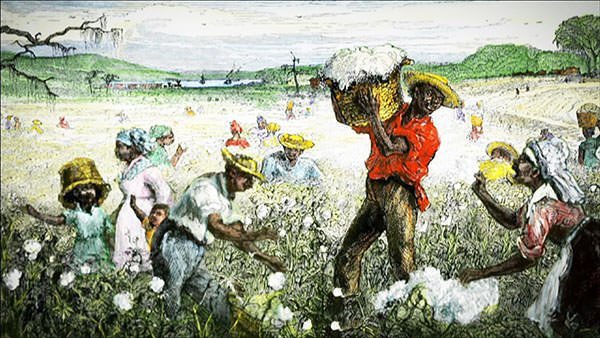
#2 Slavery
By the mid-19th century, slavery had been the cause of friction between the southern Slave states and the northern Free states for many decades. Slavery was illegal in much of the north, being outlawed in the late 18th and early 19th century. However, it was deeply interwoven with the economics of the southern states, which had become the primary source of raw cotton for the British and European industries. By the beginning of the Civil War, some 4 million Africans and their descendants toiled as slave laborers in the South. The per capita wealth of Southern whites was twice that of the Northerners. Three-fifths of the wealthiest individuals in the Union came from the southern states and they were deeply invested in slavery. On the contrary the north was more invested in industry and entrepreneurship despite a reasonably poor working class. The political and social climate in the north had turned more and more against the institution of slavery and, to resolve the issue, a conflict or a major compromise was inevitable.
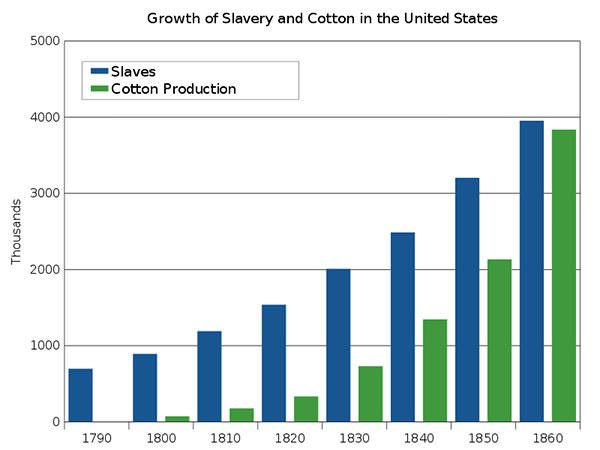
#3 State’s Rights
The politics and debates over which powers belonged to the sovereign states and which to the Federal government were not uncommon in the United States since its inception. It was in fact the basis for the formation of its first two political parties; the Democratic Republican party formed in 1792 under Thomas Jefferson, favored state rights while the Federalists under Alexander Hamilton believed in a centralized national government with strong fiscal roots. Slavery was be the main bone of contention in this state vs federal government tussle leading up to the civil war. The Slave states were adamant that slavery was a state issue and they were unwilling to accept any federal intervention on the subject.
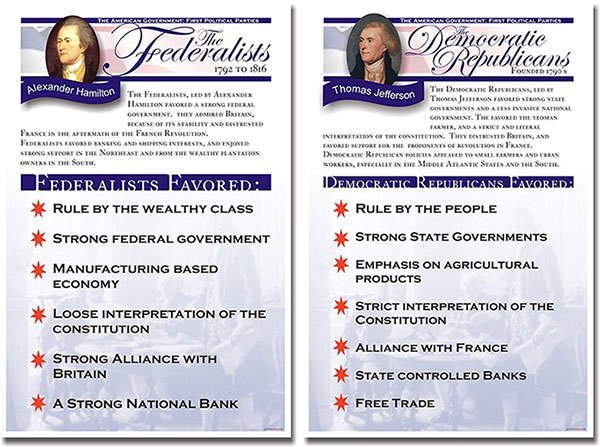
#4 Territorial Expansion of the United States
The politics over slavery began to heat up in the early to mid-19th century as new territories were being added to the union. As long as there were equal number of slave holding states in the south vis-a-vi Free states in the north, there was a perceived balance of power. However each new territory that applied for statehood would tilt the scales depending on weather it joined as a Free State or a Slave state. The northern whites feared that if slavery continued to expand to new territories they would inevitably join the southern slave-holding states making the north irrelevant and the United States would eventually become totally dominated by elite Southern slaveholders.

The Southerners on the other hand viewed slavery as the key to their economic well-being. Its expansion to newer territories opened up tremendous production opportunities for them to further their political and economic interests. This tussle led to the Missouri Compromise in 1820 establishing lands west of the Mississippi and below latitude 36º 30′ as slave and north of the line, except Missouri, as free. The political struggles over the issue continued with moments like the Wilmot Proviso Debates of 1846, victory in the Mexican American War in 1848, the Fugitive state law and the Compromise of 1850, the Kansas Nebraska Act of 1854 and the Lincoln Douglas debates of 1858. These tussles ultimately led to a point where civil war became unavoidable.
#5 The Abolitionist Movement
The American abolitionist movement emerged in the 1830s as part of religious revivalism seeing slavery as a personal sin and emancipation as a repentance for the sin. The Abolitionists tried to reach and convert a mass audience. They met with opposition from individual slaveholders and national religious institutions. In 1831, abolitionist William Lloyd Garrison began publishing the Liberator. It was supported largely by free African-Americans, who played a major role in the movement. The American Anti-Slavery Society was founded in 1833 in Philadelphia by Garrison, Arthur and Lewis Tappan, and about 60 other delegates. In the coming years they would establish hundreds of branches across the Free states producing anti-slavery literature, lectures and petitions demanding Congress to end all federal support to slavery. The Abolitionists also played a major role in the underground railways; a network of secret routes, meeting places and safe houses used by slaves to escape Slave states to reach Free states and Canada. It helped an estimated 100,000 slaves over a few decades.
#6 Uncle Tom’s Cabin
Uncle Tom’s Cabin was a path breaking fiction novel by Harriet Beecher Stowe, first published in installments in a magazine during 1850–51. It appeared as a book in 1852 selling 300,000 copies in that year and it continued to sell well for many more years. Though abolitionist press had been running in America for a few decades, many viewed them as an extreme fringe. In her work of fiction, however, Harriet Beecher Stowe was able to connect to the general readers delivering an extremely sensitive and powerful message. Uncle Tom’s Cabin portrayed the lives of the slaves and their owners, how slavery operated as a business, how the slaves were bought and sold, and how they were separated from their families. Stove’s characters were white and black, of the North and the South, benevolent and sadistic, all grappling with the institution of slavery. The novel with its tremendous success was instrumental in changing the public perception on slavery. It is often quoted though not verified that when Abraham Lincoln met Stowe at the White House in December 1862, he reportedly greeted her by saying, “Is this the little woman who made this Great War?”
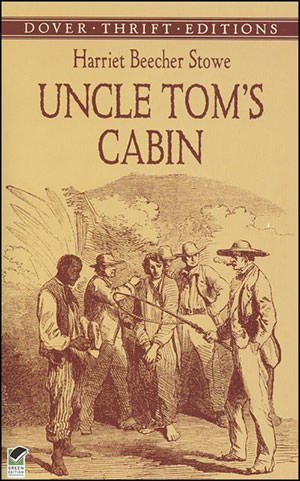
#7 Bleeding Kansas
In 1854, the Kansas Nebraska Act was passed which overturned the 1820 Missouri Compromise and mooted for popular sovereignty. That meant that instead of having a latitude divide the slave and non-slave territory, the residents of the state would decide whether it joined as a slave state or a free state. This led to the flooding to the state of both pro-slavery and anti-slavery factions forming their separate governments and trying to influence the decision. Popularized by the New York Tribune the term ‘Bleeding Kansas’ refers to the series of confrontations, electoral frauds, assaults and retributive murders that took place between these groups between 1854 and 1861. Bleeding Kansas was the precursor to the civil war in a way that it was where confrontations started getting more serious and physical.
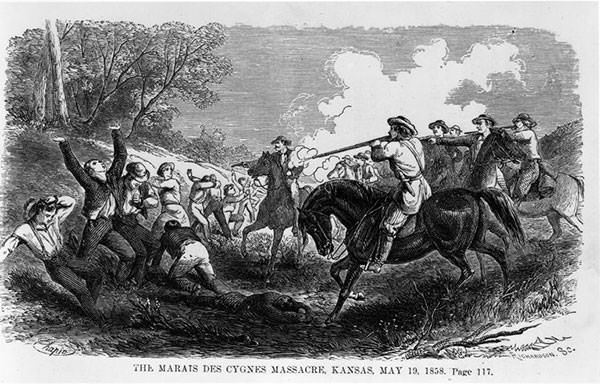
#8 The Dred Scott Decision
The Dred Scott case or Dred Scott Vs Sanford was a landmark decision in US Law history and is considered to have acted as a catalyst in the American Civil War. In 1833, Dred Scott was purchased by US army surgeon John Emerson and taken to Winconsin which was a non-slave territory. In 1840, Scott, his new wife, and their young children moved to Louisiana and then to St. Louis with Emerson. After the death of Emerson, Dred Scott and his family came under Emerson’s wife Eliza Irene Sanford. Things turned sour in 1846 when, after years of work, the Scotts attempted to buy their freedom from Sanford and she refused. In 1850 the state court declared Scott free but the decision was overturned by the Missouri Supreme Court. In 1856-57 the case was contested in the US Supreme Court. In a 7–2 decision written by Chief Justice Roger B. Taney, the court denied Scott’s request ruling that a negro, whose ancestors were imported into the United Sates and sold as slaves, whether enslaved or free, could not be an American citizen and therefore had no standing to sue in federal court. The decision caused an outrage among the anti-slavery groups and is counted among the worst decisions given by the US Supreme Court.
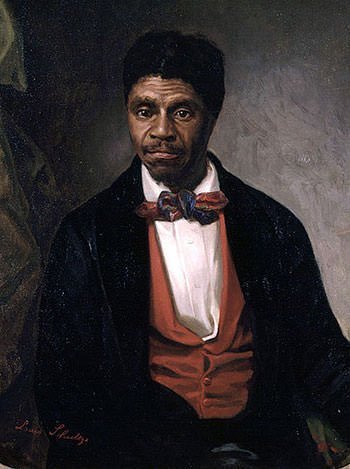
#9 Election of Abraham Lincoln as the President
The heated Lincoln Douglas debates of 1858 were a series of seven debates between Abraham Lincoln of the newly formed Republican Party and Stephen Douglas of the Democratic Party. The main issue discussed in these debates was slavery in the United States. It was these debates that made Lincoln a prominent figure in the national politics. He gained nomination for President in 1860 which totally outraged the southerners who hated him for his anti-slavery stance. On November 6, 1860, to the surprise of many, Abraham Lincoln won the US presidential election without the support of a single southern state. Though his election may not have been the primary cause for the war but it sent warning bells ringing in the southern states leading to secession and finally the civil war in 1861.

#10 Secession of the South from the Union
The election of Lincoln caused the state of South Carolina to call a state convention which voted unanimously in favor of secession on 20th December, 1860. The “cotton states” of Mississippi, Florida, Alabama, Georgia, Louisiana and Texas followed suit, seceding in January and February 1861. These states then agreed to form their own Federal Government calling it the Confederate States of America, on February 4, 1861. After the Confederate attack on Fort Sumter in April, Lincoln called on all the states to send forces to recapture federal properties. Virginia, North Carolina, Arkansas and Tennessee, unwilling to send forces against their neighbors, voted to secede and joined the Confederates. In his inaugural address on March 4, 1861 Lincoln called any secession “legally void”. He had no intent to invade southern states nor did he intend to end slavery where it existed. However, he said that he would use force to maintain possession of Federal property. The battle lines were clearly drawn.
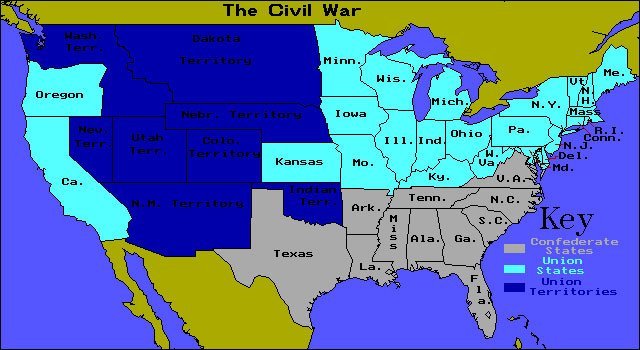
Cotton Is King
Cultivation of cotton using black slaves brought huge profits to the owners of large plantations, making them some of the wealthiest men in the U.S. prior to the Civil War. The importance of cotton and the confidence of the South based on cotton may be best summed in the 1858 statement of Senator James Henry Hammond of South Carolina:
“Without the firing of a gun, without drawing a sword, should they [Northerners] make war upon us [Southerners], we could bring the whole world to our feet. What would happen if no cotton was furnished for three years? England would topple headlong and carry the whole civilized world with her. No, you dare not make war on cotton! No power on earth dares make war upon it. Cotton is King.”
Senator James Henry Hammond

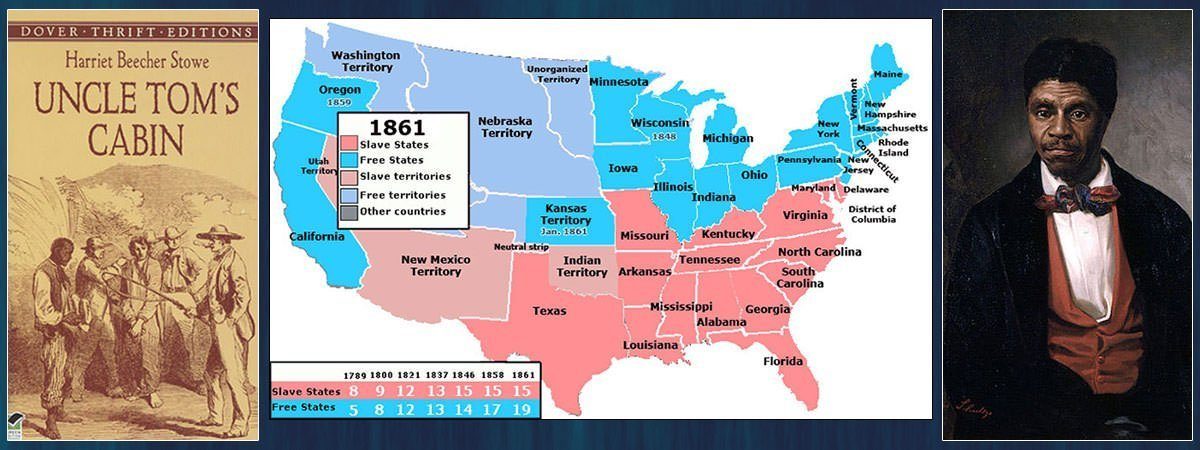
rickdiculus
I do honestly and truly believe that if every white person was wiped off the face of the earth the blacks would be complaining that there are no whites now to complain about.
ikr the liberals would have nothing to complain about anymore lol
Ridiculous!